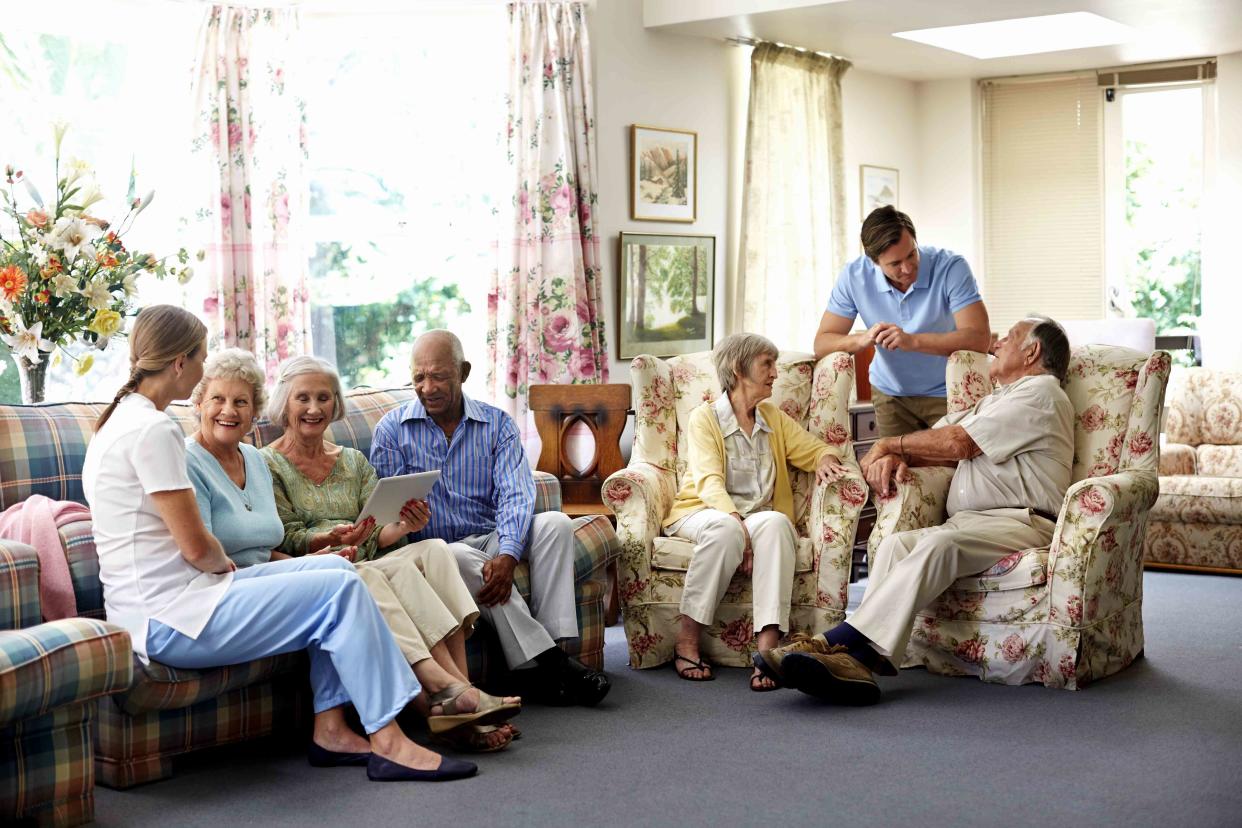STDs Rising Significantly Among Adults Age 55 and Older — and Nursing Homes May Be a Source
Rates of syphilis, gonorrhea and chlamydia saw a significant rise among the age group in the past decade

Rates of three sexually transmitted diseases — syphilis, gonorrhea and chlamydia — are rising among adults age 55 and older, according to the U.S. Centers for Disease Control and Prevention (CDC).
Data from the public health agency showed a significant rise in STDs between 2012 and 2022. During that time period, the number of syphilis cases among the age group increased seven-fold, gonorrhea cases increased nearly five-fold and chlamydia cases more than tripled.
Matthew Lee Smith, an associate professor at the Texas A&M School of Public Health, told NBC News that nursing homes and retirement communities have created opportunities for older adults to have new sexual partners.
A 2016 survey of nursing home directors even found that sexual activity was common in these settings, which often have more female than male residents.
“In the heterosexual, older adult community, there’s a partner gap: Women live longer than men and there’s a larger proportion of females to men,” Smith said. “What it can lead to oftentimes is multiple partners and sharing of partners.”
Related: STDs in the U.S. Are 'Out of Control' After Syphilis Cases Spiked 26% Last Year

Getty
Stock image of a blood sampleNever miss a story — sign up for PEOPLE's free daily newsletter to stay up-to-date on the best of what PEOPLE has to offer, from celebrity news to compelling human interest stories.
Additionally, he noted that doctors may be timid asking older patients about their sexual activity, and older adults aren’t as open about their sexual activity with peers of family members.
“No one wants to think about grandma doing this,” Smith told the outlet. “You certainly aren’t going to ask grandma if she was wearing condoms — and that’s part of the problem, because every individual regardless of age has the right to intimacy.”
Adults age 55 and up also may not have received the same sex education that younger generations have gotten. According to a 2023 study published in The Lancet, older adults are less likely to use protection during sex.
“This generation rarely considers using protection because they came of age at a time when sex education in school did not exist, HIV was virtually unheard of, and their main concern in seeking protection was to avoid pregnancy,” wrote Janie Steckenrider, associate professor of political science at Loyola Marymount University and lead author of the study.
The increase in STDs among adults age 55 and older is prompting more doctors to have conversations with their patients at all ages about sexual health.
For more People news, make sure to sign up for our newsletter!
Read the original article on People.
